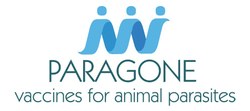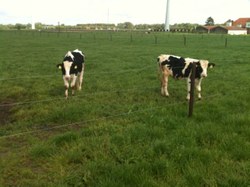Sustainable food security - PARAGONE
PARAGONE (Vaccines for animal parasites) is a four-year project (April 2015-March 2019) with 17 partners comprising academic members from six European countries, Uruguay and China and four commercial partners from across the EU.
Of the commercial partners, two are animal health companies, one is a biotech company focused on bioinformatics, one a company focused on immunological tools and the other develops novel adjuvant systems.
PARAGONE is led by Moredun Research Institute, UK, with Professor Jacqui Matthews acting as the coordinator. She works with the Management Board to coordinate the research, training, dissemination and administrative deliverables.

These parasite vaccines mostly comprise cocktails of several worm proteins. In PARAGONE, the partners will take a number of these prototypes and test them in further trials, as well as combine some to make multivalent vaccines.
For parasites for which recombinant vaccines have proved difficult to develop, fundamental studies will be performed to inform on the type of host response that needs to be stimulated to obtain protection. This will feed into the selection of appropriate novel adjuvant systems with which to deliver the vaccines.
By bringing these streams together, PARAGONE will take the current best multicellular parasite vaccine prototypes forward to practical outcomes for use on farms in the EU and beyond.
Objectives
The overall objective of PARAGONE is to develop vaccines for the control of helminth and ectoparasitic infections that have a major impact on the efficiency of ruminant production systems worldwide.
The pathogens and vaccine candidates in the PARAGONE project have been selected according to the economic impact of the target parasites and the existence of current prototypes that have demonstrated promising results in sheep (Teladorsagia circumcincta, Fasciola hepatica, Psoroptes ovis) and cattle (Ostertagia ostertagi, Cooperia oncophora, F. hepatica).
- Moving best current vaccine prototypes to demonstration by simplifying antigen production, testing vaccine cocktails and examining multivalency potential.
- Interrogating host/parasite interactions to optimize downstream delivery to generate protection
- Utilizing novel adjuvants and vectors to exploit the outputs of the above.
- Translate the derived prototypes into marketable products.
Role of Ghent University

Vaccines based on recombinant ASP proteins, however, failed to induce similar levels of protection. In PARAGONE, the protein structure and secondary modifications of protective native ASP proteins and non-protective recombinant ASP are compared (dr. Jimmy Borloo) to discover structural epitopes that are associated with a protective immune response.
Mucosal immune responses in calves vaccinated with the protective vaccine and with unprotective recombinant vaccines are compared, to identify immune mechanisms asscociated with protection. A mice model and in vitro assays are developed to screen recombinant vaccine candidates (prof. Peter Geldhof).
Together, these results should lead to improved recombinant antigen production and antigen delivery. Finally, vaccine studies will be performed to test the protective capacity of the C. oncophora ASP vaccine against related Cooperia species in sheep and cattle and to evaluate a multivalent Ostertagia-Cooperia vaccine in field conditions in cattle (prof. Edwin Claerebout).
In addition, in collaboration with the Moredun Research Institute, a prototype vaccine that protects sheep against the scab mite Psoroptes ovis will be tested in Belgian Blue cattle, which are notoriously susceptible to this ectoparasite.
In the PARAGONE management structure, Prof. Claerebout is work package leader for WP1 (vaccine trials).
Contact
Prof. Edwin Claerebout
Department of Virology, Parasitology and Immunology
Phone number: +3292647393
E-mail: Edwin.claerebout@ugent.be